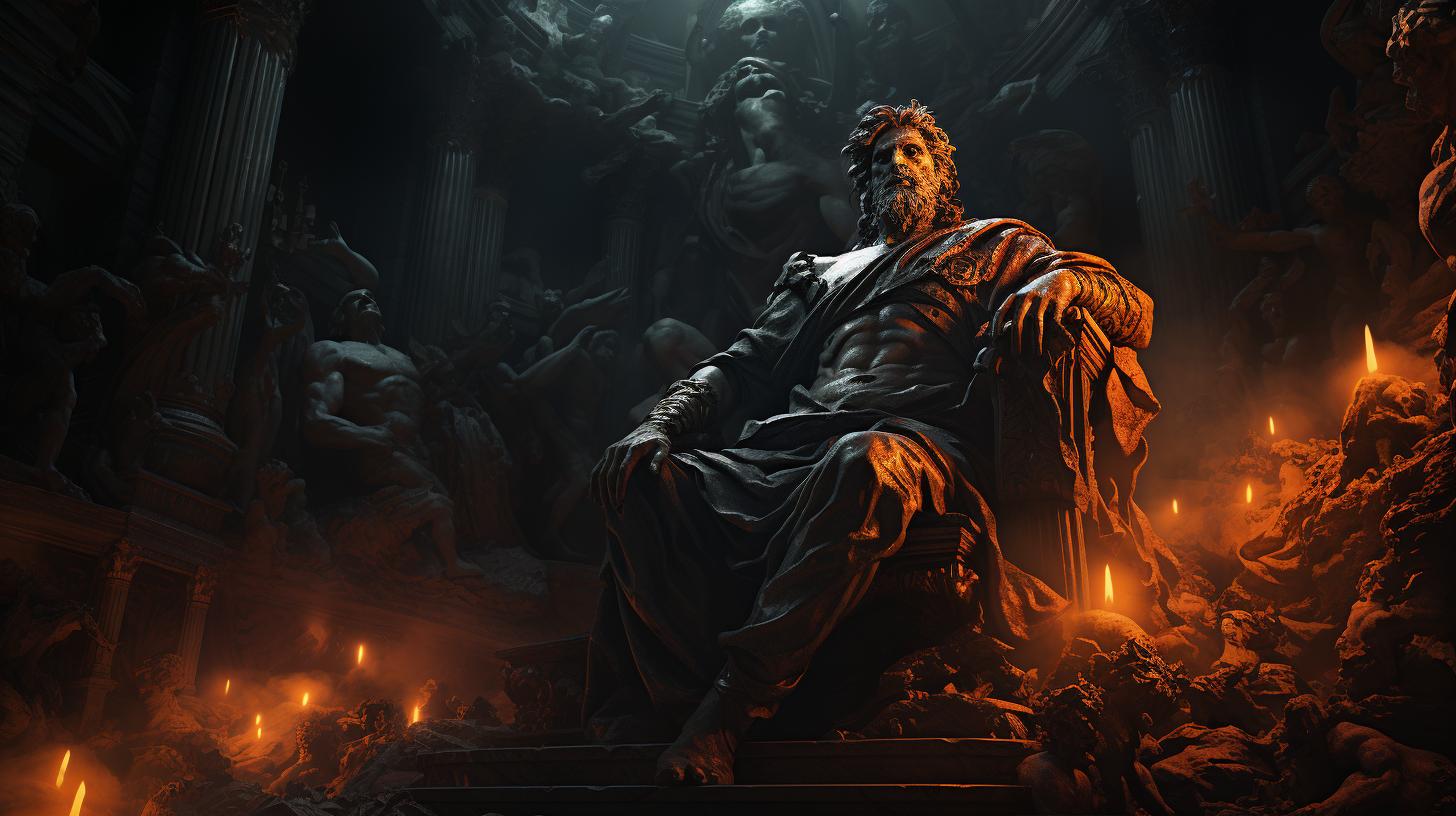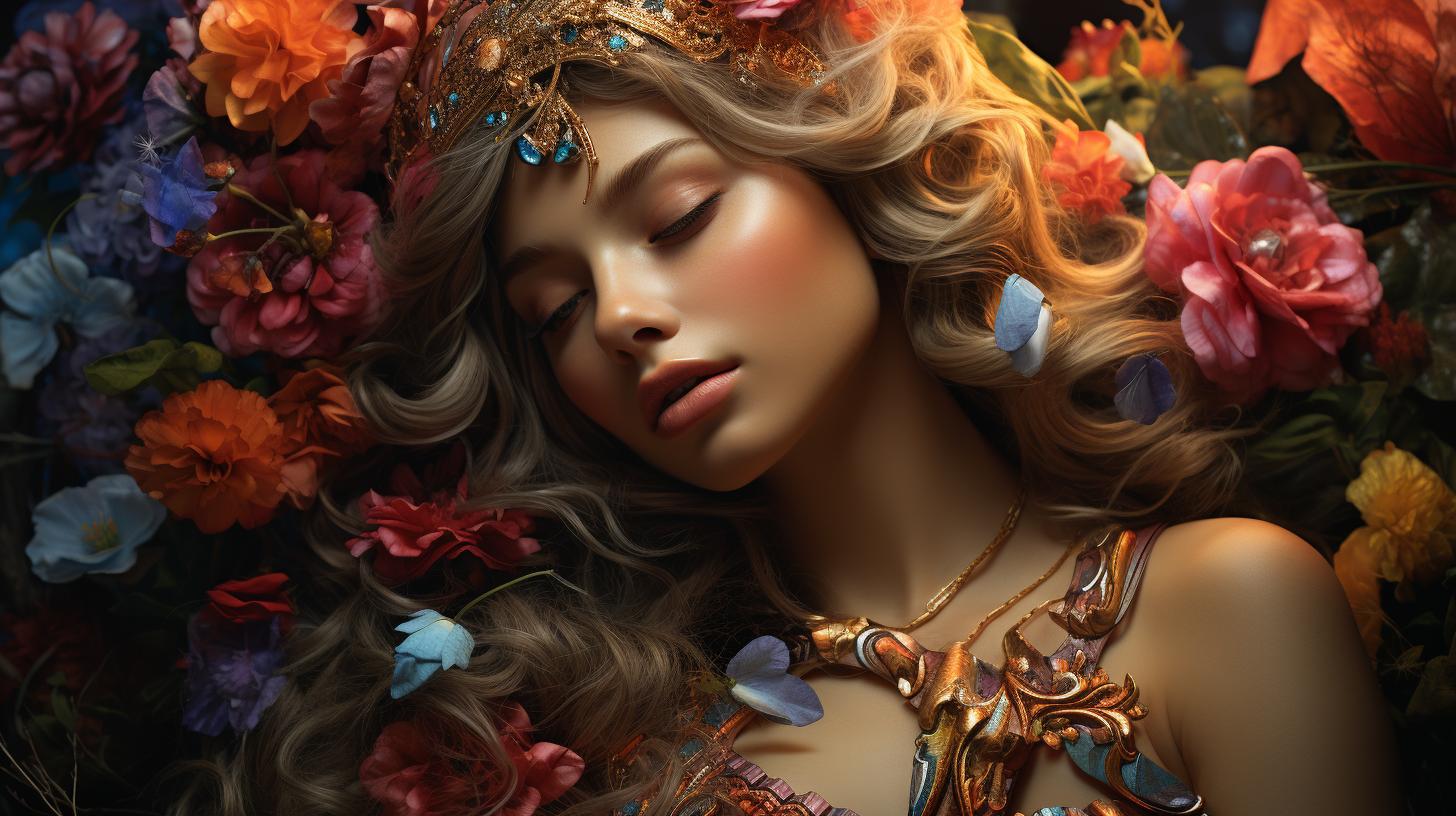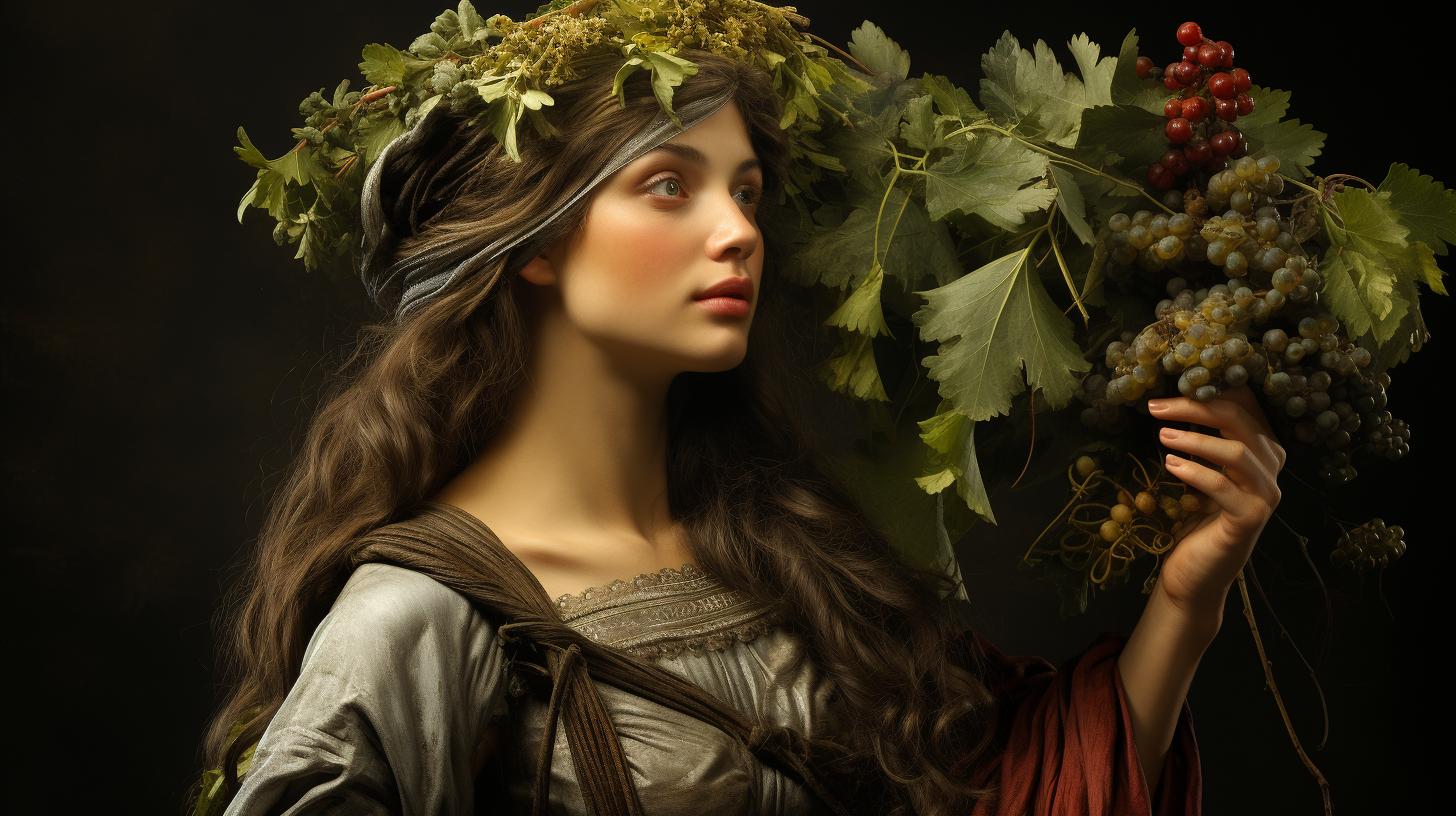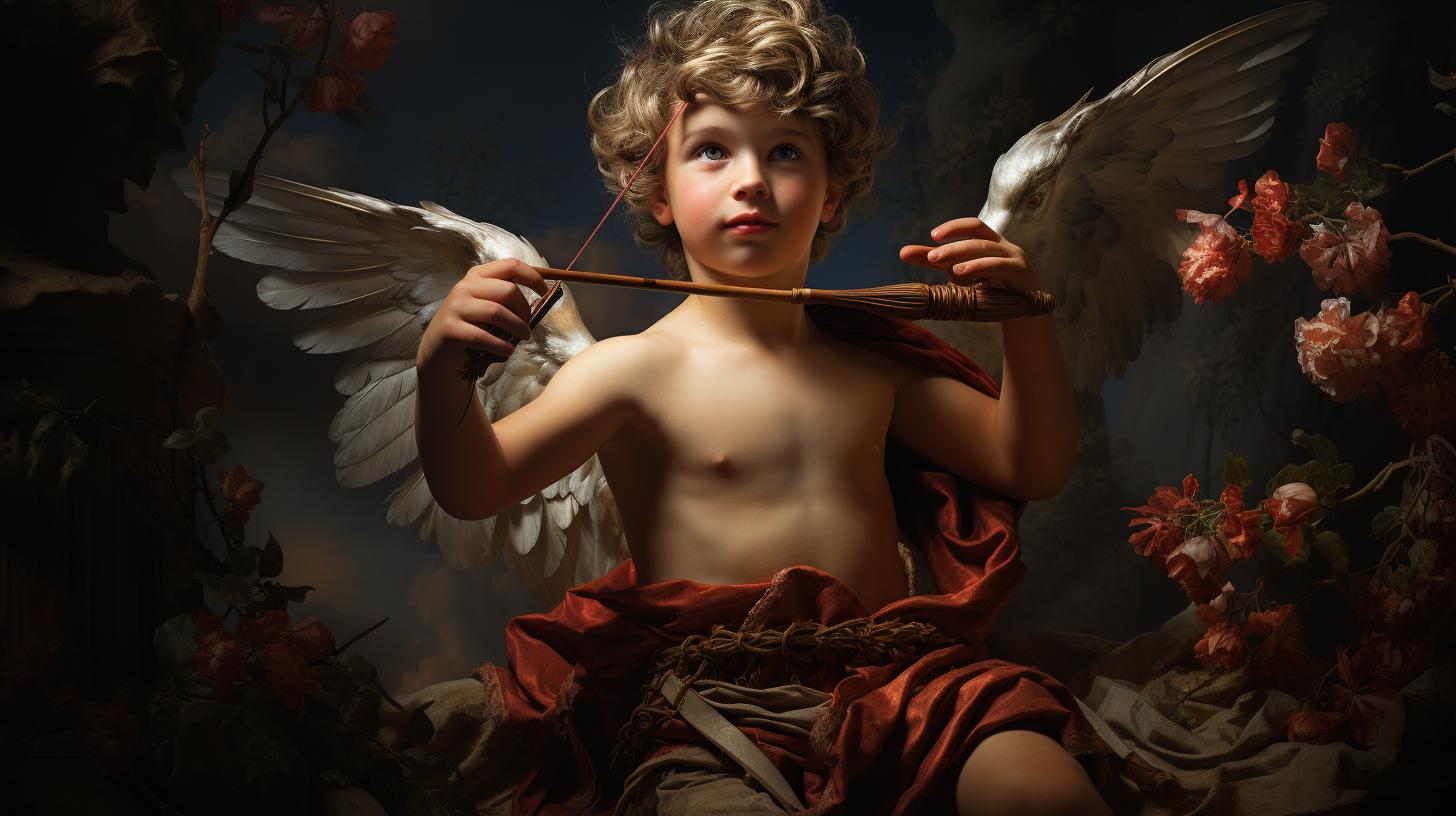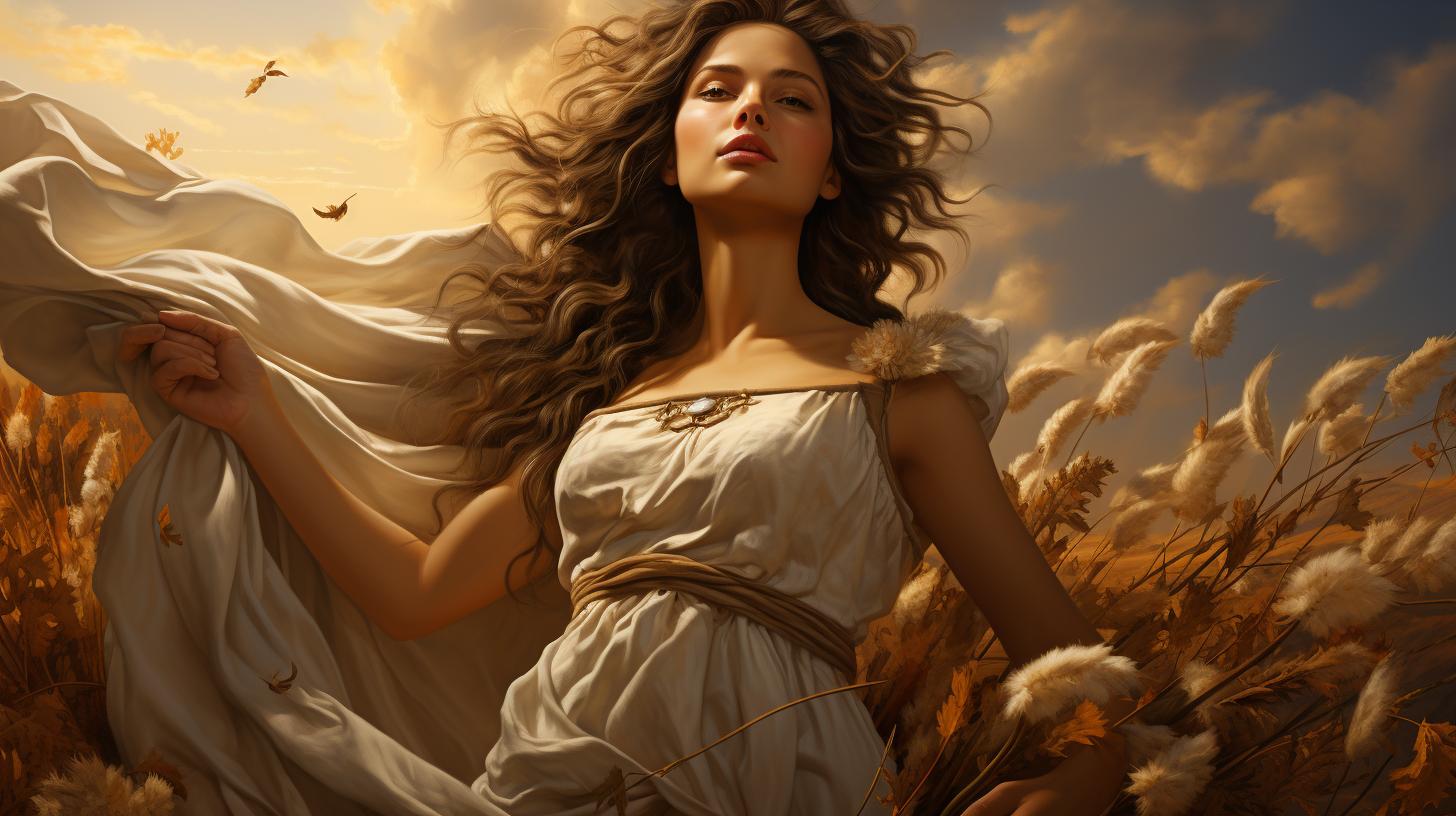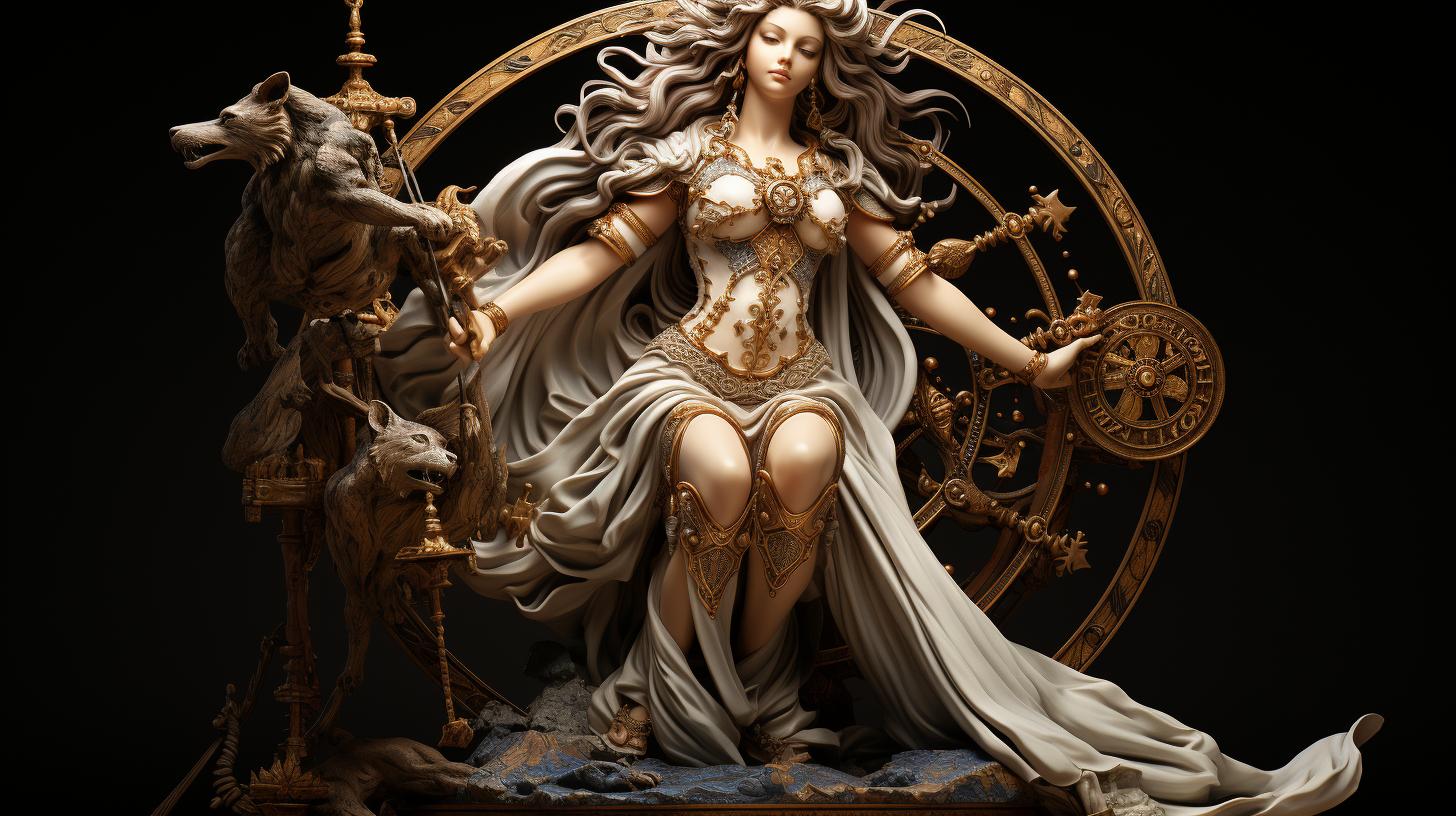Orcus Roman God: Unveiling the Mysteries of the Underworld Deity
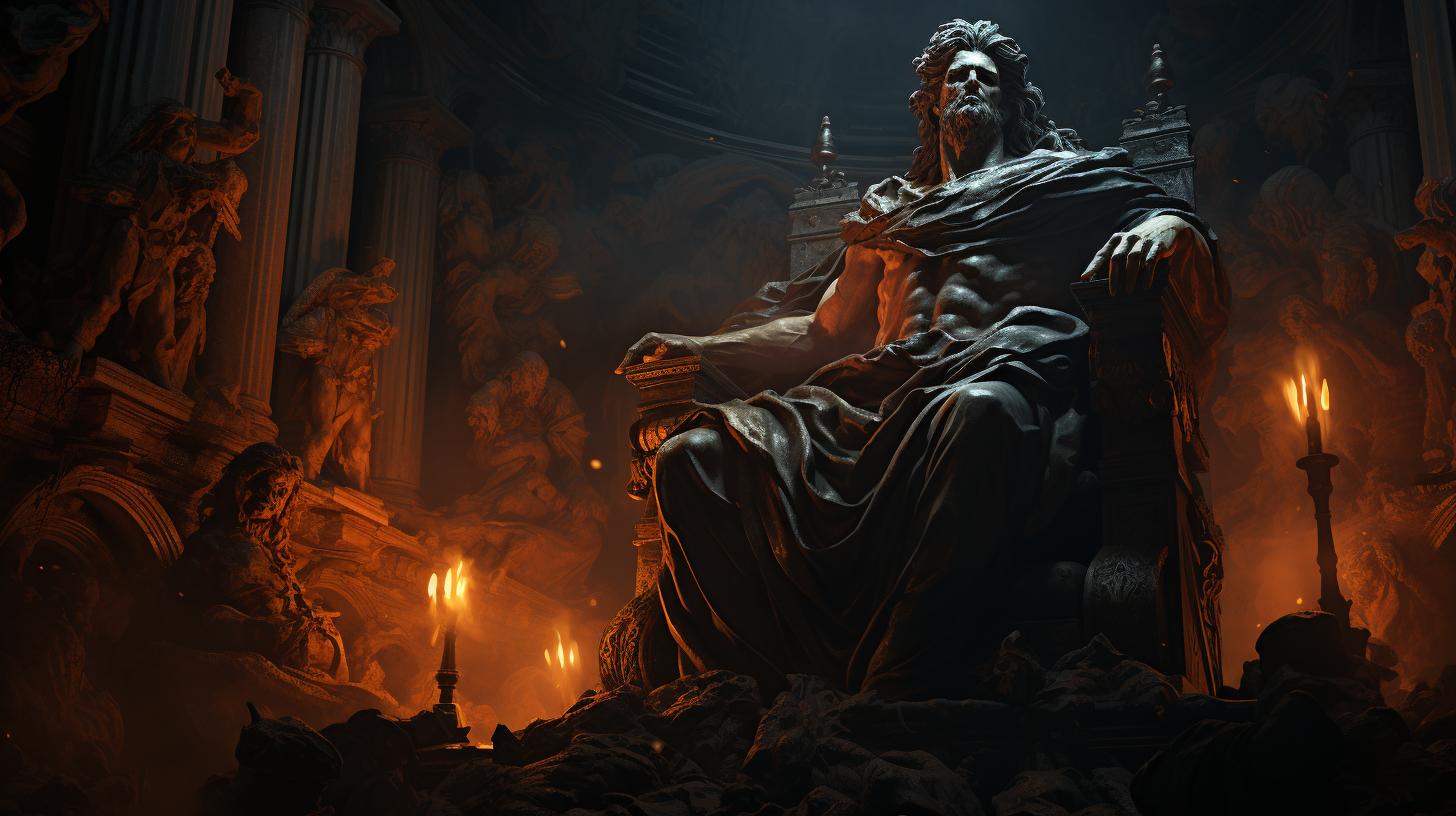
Orcus, the Roman god of the underworld and death, holds a significant place in both Roman and Etruscan mythology. Associated with punishing wrongdoers and those who break oaths, Orcus shares connections with other underworld deities like Pluton, Hades, and Dis Pater.
While there is no concrete evidence of a dedicated temple to Orcus in Rome, his worship thrived in rural regions. Orcus’s influence can be seen in Italian folklore, literature such as Ariosto’s ‘Orlando Furioso,’ and even in Tolkien’s ‘The Lord of the Rings.’
Recent archaeological discoveries continue to shed light on Orcus and his role in ancient mythology.
Origins of Orcus in Roman and Etruscan Mythology
The figure of Orcus holds significant importance in both Roman and Etruscan mythologies, particularly in relation to the realms of the underworld and death. This section explores the origins and speculations surrounding Orcus, shedding light on his mysterious existence.
The Etruscan Influence on Orcus
The influence of Etruscan culture and religion is evident in the figure of Orcus. The Etruscans had a complex belief system centered around death and the afterlife, and Orcus is commonly associated with their mythological traditions.
The similarities between Orcus and Etruscan deities suggest a strong influence that shaped the Roman perception of this underworld god.
Speculations on the Origin of Orcus
The origin of Orcus remains speculative, with no definite evidence to trace his roots. However, some theories suggest a connection between Orcus and the Greek demon Horkos, who represented oaths and was the son of Eris, the goddess of strife.
This link implies a potential influence from Greek mythology on the conception of Orcus in Roman and Etruscan cultures.
As research continues and more discoveries come to light, our understanding of Orcus and his origin in Roman and Etruscan mythology evolves, unraveling the intricate web of beliefs surrounding this intriguing underworld deity.
Understanding the Role of Orcus in the Underworld
Orcus, a significant deity in Roman and Etruscan mythology, held a crucial role as the punisher of wrongdoers in the realm of the underworld. His association with justice and retribution made him a fearsome figure, responsible for meting out punishments to those who broke oaths, lied, or betrayed others.
As the enforcer of divine justice, Orcus ensured that those who committed heinous acts faced the consequences even in death.
Orcus as the Punisher of Wrongdoers
.
Orcus’s primary function was to exact retribution on individuals who failed to fulfill their commitments and acted against the moral code of society. He dealt with those who violated oaths, deceived others, or showed disloyalty.
Orcus’s role as the punisher emphasized the importance of upholding promises and maintaining integrity within the Roman and Etruscan cultures. His merciless nature and strong sense of justice instilled fear among those who dared to transgress societal norms.
Comparisons with Other Underworld Deities: Pluton, Hades, and Dis Pater
.
While Orcus played a distinct role as the punisher, he also shared commonalities with other underworld deities, such as Pluton, Hades, and Dis Pater. These gods governed the realms of the dead and possessed similar characteristics tied to the afterlife and judgement.
Although each deity had its own specific attributes and legends, Orcus’s association with the underworld and his punitive nature allowed for comparative analysis with these prominent figures in Roman and Greek mythology.
The significance of Orcus’s role in the underworld sheds light on the complex beliefs and societal values of ancient Roman and Etruscan cultures. Understanding Orcus’s function as the punisher of wrongdoers and exploring his connections with other underworld deities contributes to a deeper comprehension of the belief systems and mythologies of these civilizations.
Orcus in Roman Society and Worship
Orcus, the god of the underworld and death in Roman and Etruscan mythology, did not have a formal cult in Rome itself. However, he was worshipped primarily in rural regions where his influence persisted even after the decline of worship to other more popular deities.
Let’s explore the different aspects of Orcus in Roman society and worship.
Lack of Formal Cult in Rome
Unlike many other Roman deities, Orcus did not have an established cult in the city of Rome. He was not actively worshipped in the grand temples and altars that were dedicated to other gods.
Nevertheless, Orcus held significance in the religious belief system of the Romans, particularly in relation to the afterlife and punishment of wrongdoers.
Worship of Orcus in Rural Regions
The worship of Orcus was more prevalent in the rural areas surrounding Rome. In these regions, people maintained a connection to the natural world and the cycle of life and death.
Orcus represented the fearsome aspects of death and the punishment awaiting those who acted dishonestly or broke their promises.
Devotees in rural communities likely performed rituals and made offerings to Orcus in sacred groves or natural locations associated with the underworld. The worship of Orcus in these areas provided a sense of comfort and protection, ensuring a successful journey to the afterlife.
Persistence of Orcus in Folklore and Popular Culture
Orcus’s influence extended beyond religious practices and permeated the folklore and popular culture of the Roman Empire. As centuries passed, Orcus became a prominent figure in legends and narratives, often depicted as a fearsome deity responsible for punishing wrongdoers.
This influence can still be observed today in the concept of ‘orcs’ in Italian folklore, which refers to monstrous creatures known for their appetite for human flesh. In French folklore as well, the term ‘orco’ is used to describe similar creatures.
This demonstrates the enduring impact of Orcus and his association with the darker realms of mythology and popular imagination.
In addition to folklore, Orcus found his place in literature, inspiring renowned works like Ariosto’s ‘Orlando Furioso’ and becoming a precursor to Tolkien’s iconic ‘The Lord of the Rings,’ where orcs play a significant role.
In summary, Orcus’s worship lacked a formal cult in Rome but thrived in rural regions where his significance in death and the underworld remained strong. His influence extended into folklore, popular culture, and even literary masterpieces, making Orcus a noteworthy figure in Roman society and beyond.
Literary and Cultural Influences of Orcus
Exploring the realm of literature and popular culture, Orcus has left an enduring impact on various artistic mediums. From Italian folklore to renowned literary works, his presence is felt in captivating tales and iconic characters.
Orcus in Italian Folklore and Legends
In Italian folklore, Orcus is often depicted as a fearsome monster and associated with the concept of malevolence. He has become a symbol of darkness, representing the terrifying aspects of the underworld and the afterlife.
Stories and legends speak of his ominous presence, lurking in the shadows and feeding on human flesh.
Orcus also finds a place in Italian mythology as a guardian of the dead, exacting punishment upon those who have committed grave sins during their mortal lives. His image is intricately woven into the rich tapestry of Italian folklore, adding depth and intrigue to tales of the supernatural.
Orcus in Literature: Ariosto’s ‘Orlando Furioso’ and Tolkien’s ‘The Lord of the Rings’
One of the most notable appearances of Orcus can be found in the epic poem ‘Orlando Furioso’ by Ludovico Ariosto. Here, Orcus is portrayed as a formidable supernatural force, embodying the cyclical nature of life and death.
His character reflects the volatile and unpredictable existence of the mortal realm.
Furthermore, the influence of Orcus extends to modern literature through the works of J.R.R. Tolkien. In ‘The Lord of the Rings’, Orcus inspires the creation of the fearsome Orcs, a race of savage creatures aligned with the forces of evil.
These monstrous beings serve as antagonists, adding tension and conflict to the epic saga.
Both Ariosto and Tolkien draw upon the mystique and power associated with Orcus, infusing their narratives with a touch of the otherworldly. Through their masterful storytelling, they bring Orcus to life in vibrant and unforgettable ways.
- Orcus in Italian folklore represents the embodiment of malevolence and darkness.
- Legends depict Orcus as a fearsome monster lurking in the shadows.
- Orcus is a guardian of the dead, punishing those who committed grave sins.
- ‘Orlando Furioso’ by Ludovico Ariosto showcases Orcus as a symbol of life and death’s cyclical nature.
- Tolkien’s ‘The Lord of the Rings’ features Orcus-inspired Orcs as antagonists aligned with evil forces.
The literary world has embraced the captivating allure of Orcus, incorporating his essence into narratives that resonate with readers across generations.
Frequently Asked Questions about Orcus and the Underworld
What was the significance of Orcus in Roman and Etruscan mythology?
Orcus held great significance in Roman and Etruscan mythology as the god of the underworld and death. He was believed to be responsible for punishing wrongdoers, particularly those who broke promises, lied, or betrayed others.
Orcus represented the consequences of one’s actions in the afterlife, ensuring that justice was served.
Were there any dedicated temples to Orcus?
While no conclusive evidence of a dedicated temple to Orcus in Rome has been found, it is believed that the Palatine Hill may have housed a temple dedicated to him. In rural regions, where Orcus was more prominently worshiped, gatherings and rituals likely took place in natural settings, such as forests and sacred groves.
How did the concept of Orcus influence folklore and popular culture?
The concept of Orcus influenced folklore and popular culture in significant ways. In Italy, the term “orco” is used to describe a type of monster that feeds on human flesh, derived from Orcus’ association with death and the underworld.
This notion of Orcus also influenced French folklore, where similar creatures are referred to as “orcs.” Additionally, Orcus has inspired the creation of demons and similar creatures in various literary works and popular culture, such as the orcs in Ariosto’s ‘Orlando Furioso’ and Tolkien’s ‘The Lord of the Rings.’
.
.
.
What are some notable references to Orcus in literature?
Orcus has left a significant imprint on literary works. In Ludovico Ariosto’s epic poem ‘Orlando Furioso,’ Orcus appears as a powerful entity associated with the underworld. Likewise, J.R.R. Tolkien’s ‘The Lord of the Rings’ features fearsome creatures called orcs, inspired by the concept of Orcus and his association with darkness and evil.
What are the similarities and differences between Orcus and other underworld gods?
Orcus shares similarities with other underworld deities such as Pluton, Hades, and Dis Pater. They are all associated with the realm of the dead and are responsible for carrying out punishments in the afterlife.
However, specific characteristics and roles may vary among these deities, reflecting the diverse cultural interpretations and mythological traditions across ancient Rome, Etruria, and Greece.
Recent Changes in the Understanding of Orcus
Recent studies and archaeological discoveries have shed new light on the fascinating deity Orcus, leading to a reevaluation of his significance in Roman and Etruscan mythology. Researchers have uncovered fresh insights into Orcus’ origins, his role in the underworld, and ongoing research in this field.
Let’s delve into these exciting developments to gain a deeper understanding of Orcus.
New Insights from Archaeological Discoveries
Archaeological excavations have unearthed significant artifacts and inscriptions that provide valuable information about Orcus. These findings offer glimpses into ancient rituals, beliefs, and practices associated with this enigmatic god. The discovery of previously unknown temples, sculptures, and other religious objects has expanded our knowledge of Orcus’ worship and cultural significance.
Reevaluating Orcus’ Place in Roman and Etruscan Mythology
With the accumulation of new evidence, scholars have embarked upon a reevaluation of Orcus’ place in Roman and Etruscan mythology. By comparing and analyzing various sources, they have sought to understand Orcus’ relationships with other underworld deities and his role in the belief systems of ancient civilizations.
This reassessment aims to provide a more comprehensive and accurate understanding of Orcus’ significance in the pantheon of gods.
Ongoing Research and Future Prospects
The study of Orcus and his mythology remains a subject of ongoing research. Scholars continue to explore ancient texts, artifacts, and archaeological sites in pursuit of a deeper understanding. Future prospects include interdisciplinary collaborations, advanced imaging techniques, and the application of new methodologies to unravel the mysteries surrounding Orcus and his role in ancient Roman and Etruscan society.
These recent developments in the understanding of Orcus enrich our knowledge of this intriguing deity. As research progresses, we can look forward to further discoveries, insights, and an enhanced appreciation of Orcus’ significance in Roman and Etruscan mythology.
…

